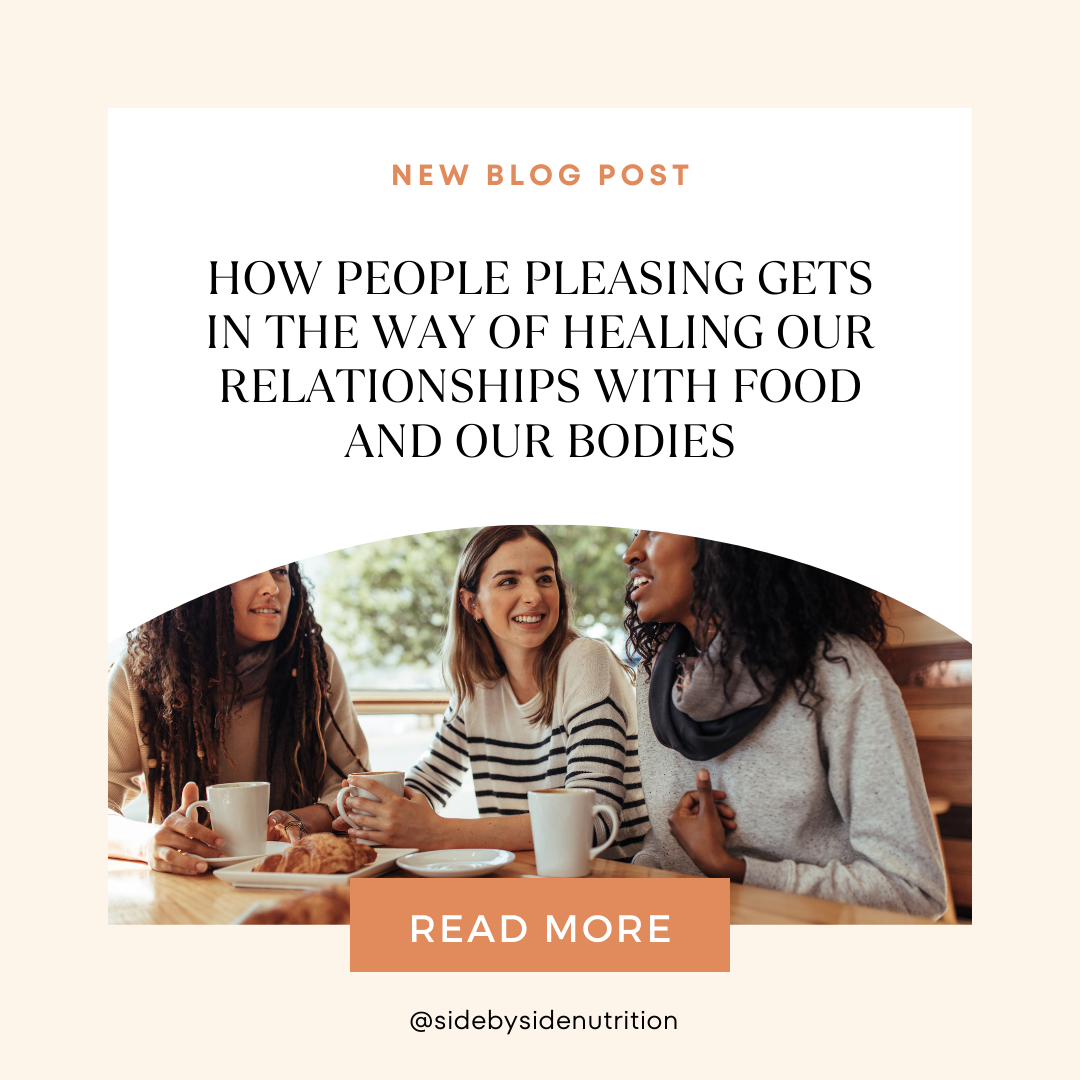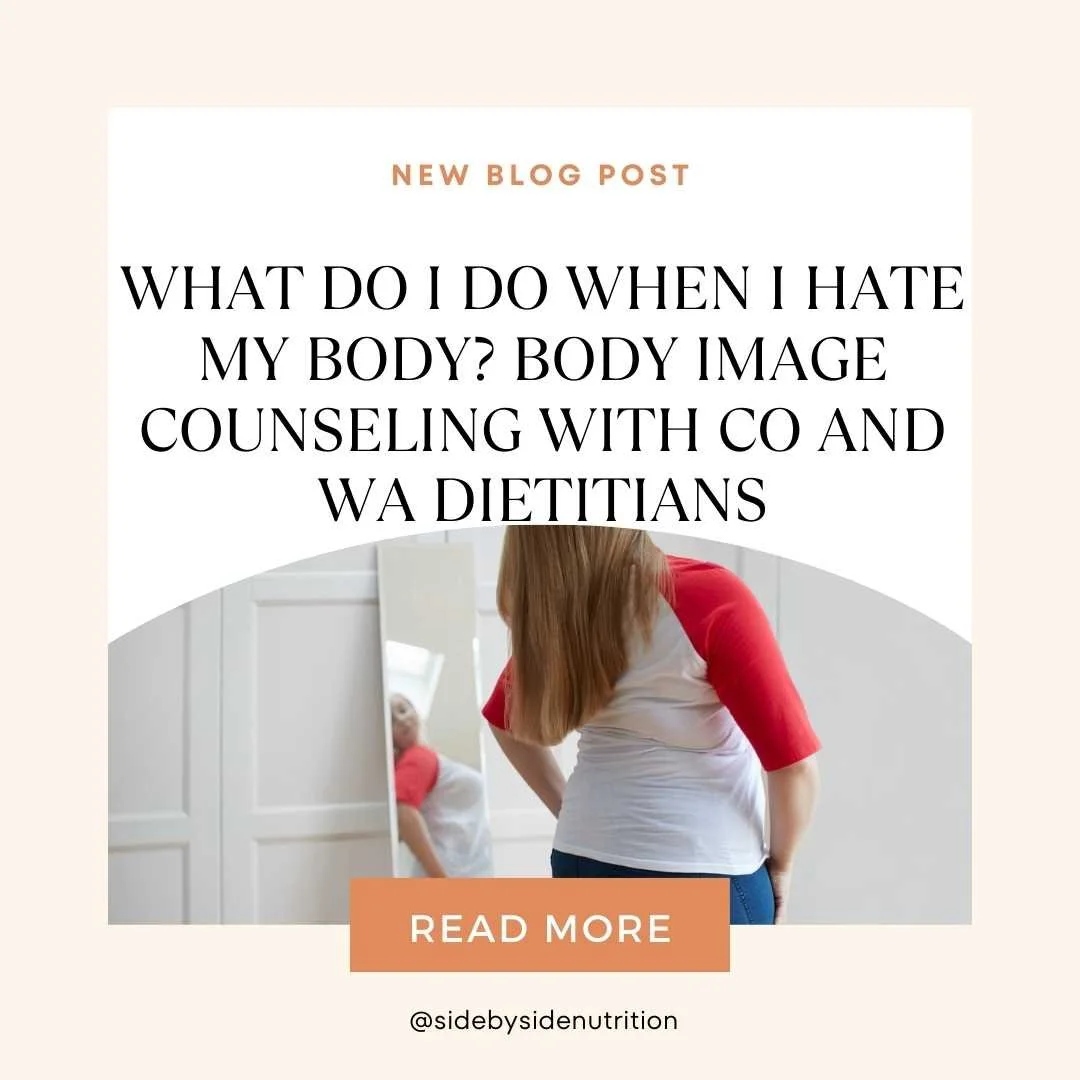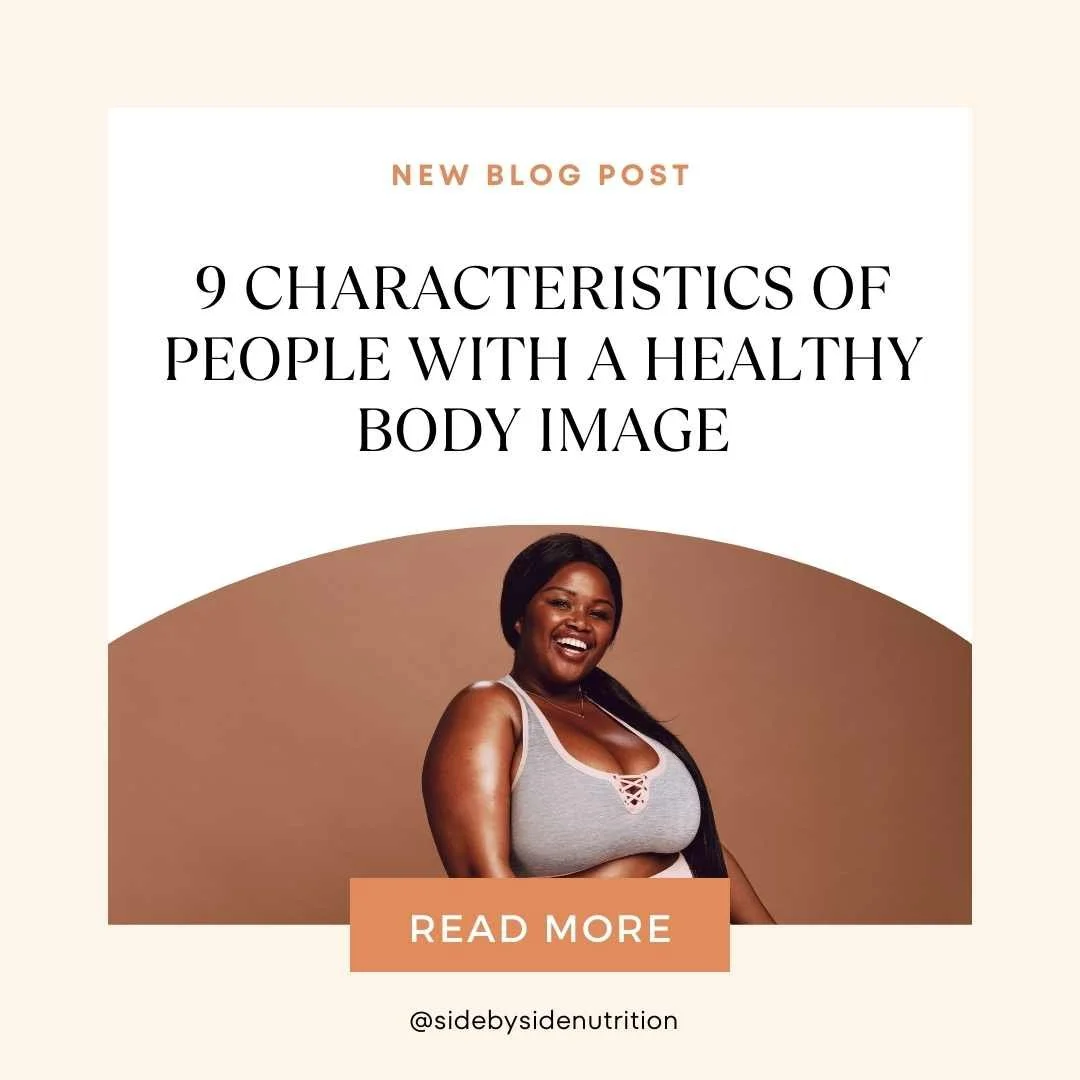How people pleasing can get in the way of body trust. Stop listening to others and improve your body image. Quiet food noise. Achieve full recovery from eating disorders and disordered eating with support from an ED dietitian in Washington and Colorado. Online and in-person treatment are available.
Read MoreGet body image counseling with expert RDNs in Colorado and Washington. Improve your body image and set realistic, achievable goals. Begin with respect to construct a healthier, kinder body image.
Read MoreImprove your relationship with food and body. Identify the 9 characteristics of people with a positive body image.
Read MoreOne of the most important aspects of healing from disordered eating is developing self-compassion. In our society, we’re often taught to be our own harshest critics, especially when it comes to food, body image, and dieting. For someone struggling with disordered eating, this critical inner voice can be overwhelming, leading to feelings of shame, guilt, and frustration.
Read MoreBreaking free from body checking is possible, but it takes time, intention, and support. Here are actionable steps to help you reduce this behavior and focus on building a healthier relationship with your body.
Read MoreBody checking is a behavior many people engage in, often subconsciously, as a way to monitor or assess their physical appearance. While it may seem harmless or routine, body checking can have a significant emotional and mental toll, particularly for those with body image concerns or eating disorders.
Read MoreIf you’ve ever felt overwhelmed by diet culture and its constant messages about weight loss, cutting out foods, and following restrictive eating plans, you’re not alone. Many people find themselves searching for a more compassionate, sustainable approach to food and nutrition. This is where a non-diet dietitian comes in.
Read MoreAnorexia nervosa has a profound impact on the brain. Beyond the obvious physical consequences, this eating disorder affects the brain’s structure, function, and chemistry, leading to changes in behavior, thinking, and emotions.
Read MoreAnorexia nervosa is one of the more well-known eating disorders, yet it remains one of the most misunderstood (as do most eating disorders). Anorexia is a complex psychological and physical condition driven by various factors that go far beyond food and weight.
Read MoreBody dysmorphia, or Body Dysmorphic Disorder (BDD), is a mental health condition where individuals become obsessively preoccupied with perceived flaws in their appearance. These flaws are often minor or imagined but feel overwhelmingly real and distressing to those experiencing BDD. Given the obsessive nature of these thoughts, many people wonder if body dysmorphia is a form of Obsessive-Compulsive Disorder (OCD).
Read MoreAre you pursuing “health” in your life but coming up short? Are you feeling overwhelmed by all of the recommendations floating around in mainstream media and simultaneously ashamed that you can’t do it all? Keep reading to hear some thoughts on how to re-frame this concept and step into a more compassionate and nuanced space as it relates to your pursuit of health.
Read MoreAs part of breaking the cycle of acting on ED behaviors in response to negative body image, you can learn skills to help tolerate urges for eating disorder behaviors.
Read More












